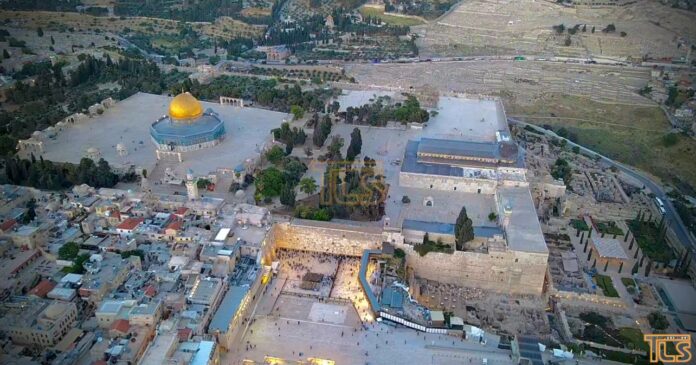A paradigm shift, a new way of looking at something, can be so powerful and dramatically change things in just a moment of clarity. Below, from pain to purpose, in 3 stages.
Pre-Tishrei
We read in parshas Bo and the seder about the plague of darkness. 6 days of darkness, and then eating the korban Pesach, makkos bechoros, and Paroah tells the Jews to leave – immediately. What an amazing turnaround and redemption. Sensational! And heartbreaking. Whoa – heartbreaking???
Rashi explains (Shemos 10:22, 13:18) that during the plague of darkness, 4 out of 5 Jews died (some commentaries say more) during the first 3 days of the plague because they didn’t want to leave Egypt – they didn’t believe. The darkness provided a cover so the Egyptians wouldn’t see their downfall. Each year I dwell on that part and imagine what it must have been like. 80% of the Jews died. That’s twice as much in 3 days than during the entire Holocaust. I can’t begin to fathom what that must have been like. A whole nation in mourning. Every family shattered. After the ending of their slavery, and watching all the makos strike the Egyptians but not our people. So close to redemption, and then…devastation? Perhaps it was the experience of makas choshech, when 4/5 of our people died, that explains how after all the miracles, crossing the Yom Suf and seeing the dead Mitzriyim on the shore, they could later wonder if they had been brought to the desert to die.
In Sanhedrin 111a the future redemption is likened to leaving Egypt – most won’t survive. We are supposed to long for Moshiach every day. It’s in our daily prayers. Shouldn’t everyone want Moshiach – an end to this bitter galus? The ability to truly focus on serving Hashem? But when I look at a seder table with a couple of empty seats, I can’t help but wonder if Moshiach coming means I will lose family (forget for the moment the idea that I might not “make the cut”). How can I daven for Moshiach if it means my non-observant, adult children will die? Sometimes at minyan I try to daven for Moshiach and break down crying. Isn’t life in galus with my family intact better than redemption with irreparable holes in my heart? And while I’m crying, I can’t help but wonder if others are seeing me and thinking I’m davening with so much kavana, when in fact I am devastated by the feeling of being a failed parent.
Ultimately, Moshiach is needed for Hashem’s sake. He has no proper dwelling in this world. His chosen people are attacked and suffering. There is a lot of machlokes in His world. He is also in galus. And so, I try to daven for Moshiach – not for my sake, but for His sake. In Shabbos 31a, Rava lists the 6 questions we are asked when we face judgement in the next world, including, “Did you anxiously await redemption?”. I will have to answer honestly: “Sometimes. But it was lishmo”.
Tishrei
On Yom Kippur I daven with Rabbi Aaron Werner’s “The Shemoneh Esrai of Rosh Hashana and Yom Kippur“. I’ve used it for about 25 years, but this year something in Yom Kippur shemoneh esrai hit me like never before. “V’zichron kol amcho Beis Yisroel lifonecho” (“And the remembrance of Your entire people, the House of Israel, before You”). Rav Werner explains this as “Remember Your entire people, every Jew who ever lived, and bring every one of them back to life in the Messianic Era”. “Every Jew who ever lived” – that includes my non-observant, grown children! True, this is our prayer – it might not be granted. Perhaps Rav Werner is alone in this explanation. But it gives me hope, and that’s usually all I’ve ever really needed in life. Now I can daven for Moshiach for His sake with all my heart, and not just sometimes.
Post-Chanukah
I attended a Kesher Nafshi Shabbaton for parents of children who are struggling with their Yiddishkeit. The speakers emphasized how having spiritually struggling children is our own nisayon that Hashem has sent us for our growth. Indeed, in “Pathways to the Heart”, Rabbi Reuven Boshnack beautifully explains the Izhbitza-Radzin Chassidic tradition that “our challenges are shidduchim for us from the time of creation, sent specifically for our own improvement.” Having non-observant children is my nisayon. It is for my good. My children have their nisayon, and it’s for their good. Kesher Nafshi stressed the importance of my seeing that my non-observant children don’t just have beautiful neshamos, they are beautiful neshamos. I don’t know what Hashem wants from my non-observant children’s neshamos. Perhaps they are fulfilling their tikun. Maybe what they are accomplishing in the face of their challenges is greater than what I am accomplishing. Maybe if Moshiach came now, they would merit redemption – even if they aren’t looking and living the way I hoped. I think, at the intellectual level, I always knew this and could apply it to other people’s children. Thanks to Kesher Nafshi, I can now apply it to my own children. The paradigm shift is complete.
Now I can daven for Moshiach – for His sake and for mine.
TLS welcomes your submissions by sending them to [email protected]

